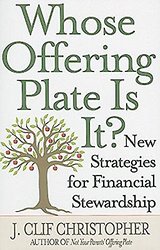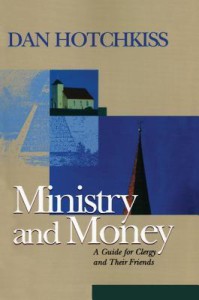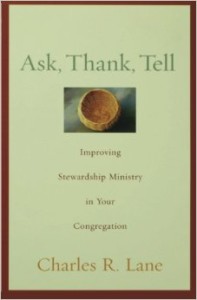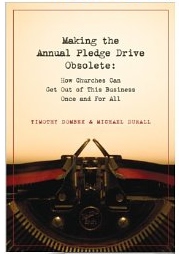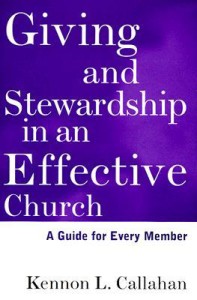We periodically post on this page books, articles, and other sources we find of value, which we are pleased to share with you. Most recommended books can be found on the UUA Bookstore website (http://www.uuabookstore.org) or at your local bookstore or online retailer. More frequent and varied listings may also be found often in our monthly blog, Stewardship for Us.
Books About Congregational Giving and Stewardship
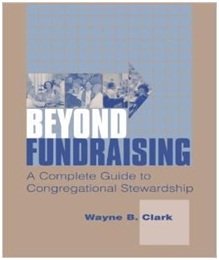 Beyond Fundraising: The Complete Guide to Congregational Stewardship by Wayne B. Clark
Beyond Fundraising: The Complete Guide to Congregational Stewardship by Wayne B. Clark
This is the essential guide for stewardship planning, programming and philosophy. Written by the long-time Director of the UUA’s Congregational Stewardship Network.
Beyond Fundraising is a solid guide, providing a wealth of information, checklists, and references. It is easy to read and well organized.
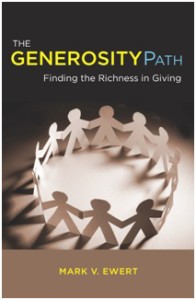 The Generosity Path: Finding the Richness in Giving by Mark V. Ewert
The Generosity Path: Finding the Richness in Giving by Mark V. Ewert
Written by our own Mark Ewert, this book provides easy-to-implement steps to make the shift from being a donor to becoming a philanthropist. Mark provides a framework to free oneself from unreasonable fears about poverty and from unrealistic fantasies about wealth, no matter our life circumstances. The Generosity Path walks us through a process of creating purpose in our lives and makes the case that giving is a sacred act.
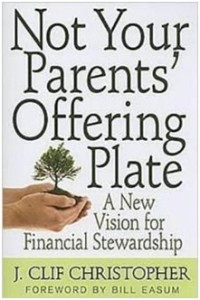 Not Your Parents’ Offering Plate: A New Vision for Financial Stewardship by J. Clif Christopher
Not Your Parents’ Offering Plate: A New Vision for Financial Stewardship by J. Clif Christopher
This book focuses on the other side of the Stewardship coin, how to promote giving in the church: recognizing the competition from many worthy causes seeking those same contributions. It calls on the reader to use the good marketing techniques used by the competition. Give people a reason to give their charity dollars to the church.
The book provides excellent examples of good and bad practices. It also highlights what the Pastor, the Stewardship Committee, and the Trustees should be doing to accomplish this new marketing perspective. This is a short, easy, highly readable book, full of good advice.
Also by J. Clif Christopher: Whose Offering Plate Is It?
Ministry and Money by Dan Hotchkiss
This is really more of a guide for clergy, yet touches on topics that are beneficial for anyone to consider.
Ask, Thank, Tell by Charles R. Lane
A practical book by a leader of the Evangelical Lutheran Church in America that is designed to be an introduction to Christian stewardship principles for individuals and committees of congregations tasked with teaching stewardship and raising operating funds for ministry.
Making the Annual Pledge Drive Obsolete by Timothy Dombek & Michael Durall
The authors argue that the annual fall pledge drive is actually counterproductive. The ideas are provocative, yet as an Amazon reviewer states, “…more practical planning would enrich the overall value.”
Giving and Stewardship in an Effective Church by Kenneth Callahan
An older book, yet still useful. It is a practical plan for the growth and development of giving and stewardship in a congregation, with action worksheets that advance the progress of the plan over four years.
J Clif Christopher is well known in the stewardship community for his writings and observations on the broad topic of stewardship. We offered a review earlier of his first book, Not Your Parents Offering Plate, a book that we have long recommended. Shortly thereafter he published Whose Offering Plate Is It?
He has published two more books that you may find useful. As is the pattern, they are short, low cost, easy reading, and offer useful recommendations. Both books are available from Amazon (as paperback or e-books) and other popular outlets, although not yet from the UUA Bookstore.
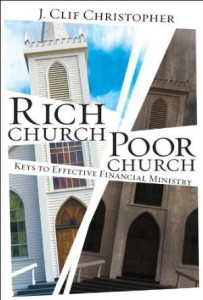 Rich Church, Poor Church contrasts the traits of the most productive congregations with those who always seem to fall short in securing the funds they need that would allow them to concentrate more on their mission and vision and worry less about money.
Rich Church, Poor Church contrasts the traits of the most productive congregations with those who always seem to fall short in securing the funds they need that would allow them to concentrate more on their mission and vision and worry less about money.
The author lists a number of traits, characteristics, and habits that describe these two different types of churches. You almost surely will find at least some of these descriptions familiar and close to home.
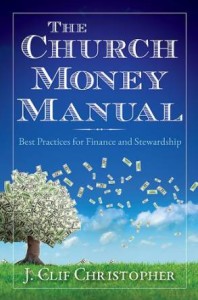 The Church Money Manual is an easy reading handbook for churches seeking to better manage finances. Brief chapters focus on specific issues. The book covers topics of day-to-day operation and the perennial challenges of church, money management, and stewardship.
The Church Money Manual is an easy reading handbook for churches seeking to better manage finances. Brief chapters focus on specific issues. The book covers topics of day-to-day operation and the perennial challenges of church, money management, and stewardship.
These are not detailed “how-to” chapters, but they do an admirable job of describing challenges and in suggesting frameworks and priorities for solutions. Topics raised include planned giving and endowment funds, end-of-year giving, what should the Minister know about donors and giving, capital campaigns, and others.
The Business of the Church by John W. Wimberly, Jr.
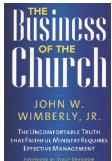 The author, formerly with the Alban Foundation, applies many years of experience as a minister and as a consultant to examine the requirements of successful church management. This is a well-written, balanced discussion, written originally for ministers but well suited for lay leaders as well, focused on matching the sense of mission and community in a congregation with the management skills needed to serve that mission. Key areas reviewed include congregational systems, personnel, facilities, and finances.
The author, formerly with the Alban Foundation, applies many years of experience as a minister and as a consultant to examine the requirements of successful church management. This is a well-written, balanced discussion, written originally for ministers but well suited for lay leaders as well, focused on matching the sense of mission and community in a congregation with the management skills needed to serve that mission. Key areas reviewed include congregational systems, personnel, facilities, and finances.
Books from Other Contexts that Relate to Congregational Stewardship
Congregational Stewardship functions in the context of a number of other contexts, including financial management, charitable giving, and to a lesser extent fundraising. Here are some books in these areas that are useful:
Stewardship as Organizational Development
- Stewardship, by Peter Block. This book is intended for corporations, to help them function more like our congregations do.
Stewardship as Spiritual Growth
- A Spirituality of Fundraising, by Henri J. M. Nouwen. This is a Christian author and spiritual director, who writes this brief book that is full of spiritual guidance for those who seek financial resources in a religious context.
- The Soul of Money, by Lynne Twist. Recommended by a blog reader. This book shows that examining our attitudes toward money– how we earn it, spend it, invest it, and give it away–can offer surprising insight into our lives, our values and the essence of prosperity. Twist has been a professional fundraiser for most of her career, so her wisdom grows out of those experiences.
Stewardship and the Economy
- Sacred Economics, by Charles Eisenstein. This author has short films, videos, articles and other books available on the web. He is very engaging in how we might understand money differently.
Stewardship and Our Financial Lives
- Money and the Meaning of Life, Jacob Needleman. Addresses our understanding of the emotional and spiritual effects of money on our lives.
- Seven Stages of Money Maturity, George Kinder. A book about financial planning based on Buddhist ideas and adult development.
- Your Money or Your Life, Joe Dominguez & Vicki Robin. A money management book about living according to your values and choosing your lifestyle.
- The Paradox of Generosity, Christian Smith & Hilary Davidson. The results of an extensive sociological study that shows the broad and deep benefits of practicing generosity, in all forms.
Fundraising
Some techniques of secular fundraising are inappropriate in a congregational setting. Be very cautious in modeling your stewardship program after non-profits, or using fundraising manuals. Here are a couple that are more easily “converted” (by you) to congregational work.
- Seeing Through Donors Eyes, Tom Ahern. The author helps with understanding how to build a case for support based on your specific donors.
- Donor Centered Fundraising, Penelope Burk. The author has done extensive research studies on donor communication, recognition, and donor relations to surface what works in building long-term relationships.
- The Fundraiser’s Guide to Irresistible Communications, Jeff Brooks. This is a guidebook for fundraising generally, not just churches. The author reviews on a step-by-step basis strategies, writing style, and design techniques of effective fundraising messages.
Other Topics
- Unique: Telling Your Story in the Age of Brands and Social Media, Phil Cooke. Congregations exist in a more connected environment than any time in history, but also in a time that is cluttered, distracted, and disrupted by social media. Although written from a Christian theological perspective, this book offers valuable advice in how to express your unique idea, project, or vision effectively in an era of modern and diverse communications.
Do you have books that have been helpful to you? Let us know! We are always looking to expand our list.

